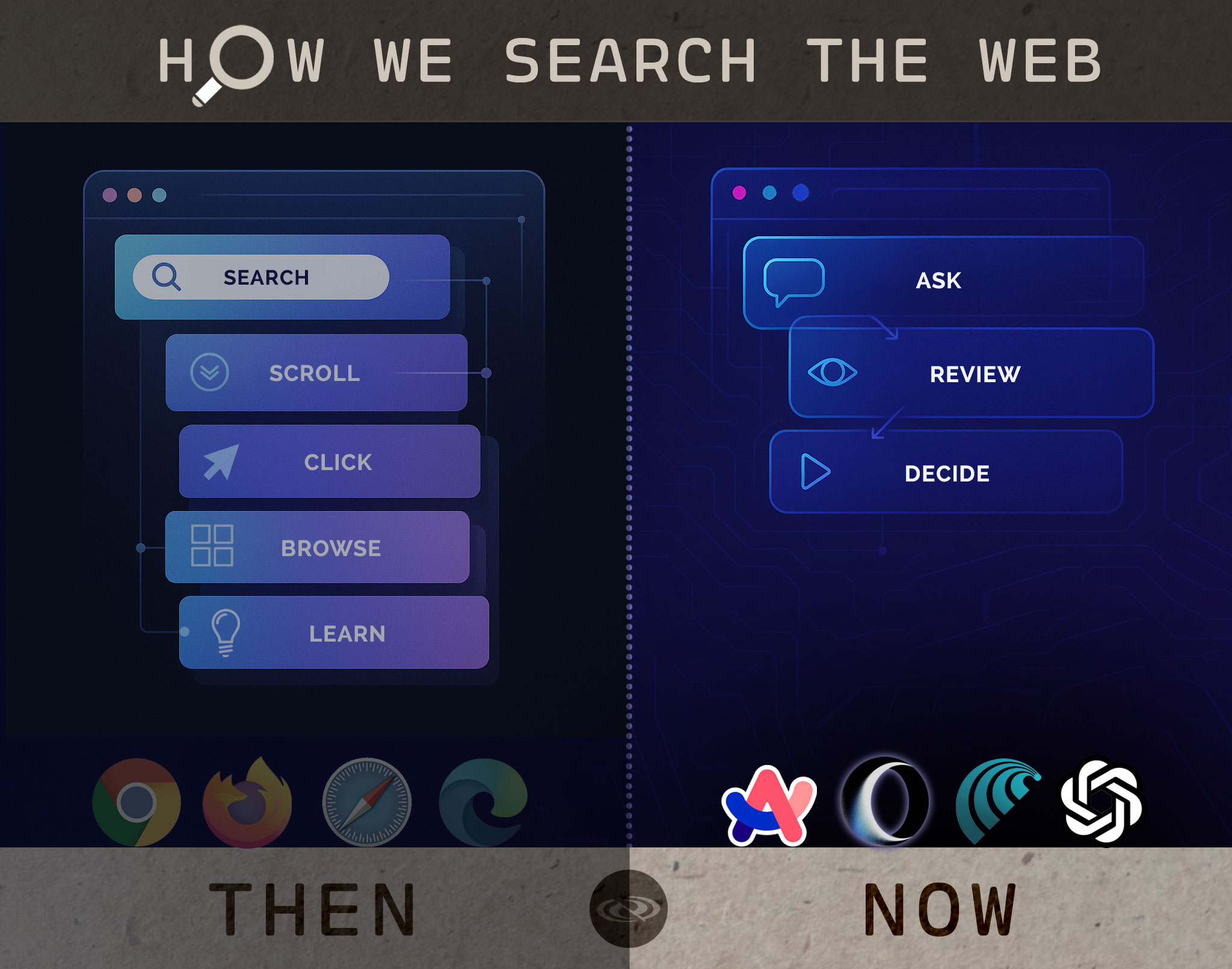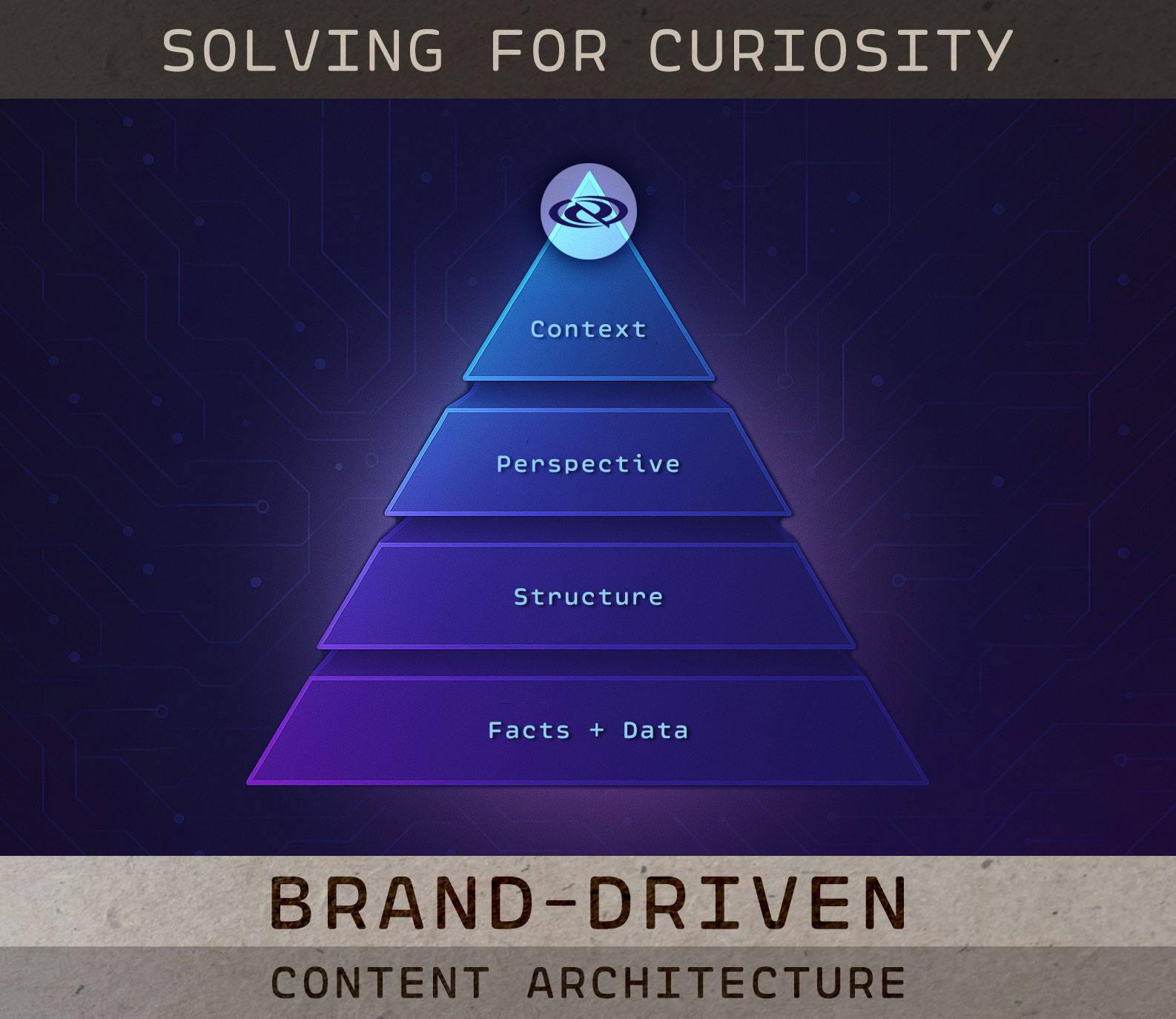

GREAT QUESTION.
Let's go back in time just a little bit to understand how we got here.
Arc Browser launched in 2022 and became one of the first browsers to include direct AI integration within its already forward-thinking platform.
With the quick rise in consumer AI products like ChatGPT and its integration capabilities, it was only a matter of time before Arc paved the way for new browser paradigms.
Tab management, AI integration and automation are becoming core to our daily browsing while speeding up how we digest the web.
Since then, we’ve started replacing Google with ChatGPT, while Google’s own built-in Gemini became the new standard for summaries at the top of Google search.
Now it’s mid-2025, AI Search has doubled, and we’re getting more sophisticated agentic browsing capabilities that offer task-based browsing and superior capabilities for understanding intent.
Opera launched Neon (FIRST!) not long before Perplexity launched Comet.
OpenAI is rumored to be shortly behind with their upcoming browser (how rude of them to keep us waiting).
And all of that has led to a pretty rapid change in the way we scour the net.


As of today, we've gone from:
to:
Decide what?
Decide if a summarized preview is enough to satisfy our search query, or if we need to dive deeper into our rabbit hole of curiosity.
Everyone is fighting to get found in AI Search Summaries, but even when they do, no one likes the drop in web traffic being created.
It’s a hot mess of SEO irony that many are scrambling to solve.
So what’s the answer and how do we get there?
If our content is designed to answer questions, it’s a step in the right direction.
Our content needs to be considered valuable enough for AI to include in its summaries, and answering frequently asked questions is a decent place to start.
But we’re dealing with tools that summarize answers to avoid extra clicks. Answering basic questions to get found in AI Search is akin to traditional SEO.
If that's the case, has anything really changed?
Yes and No.
What hasn’t changed:
What is different now?
Here's the thing: AI Search is in its infancy and there's no definitive answer.
But there's at least one approach worth discussing and it's not a new concept.
We have to:
Serve The Curious.

When curiosity kicks in, clicks happen.
The brands that are winning appear to understand content strategy, brand voice and credibility supersede keyword stuffing.
Not only do we need to provide answers, we also need to bring along information that adds more value to the conversation, namely:
Optional: Fine tune it even more with Thoughts & Opinions sprinkled in for more personalization and engagement without losing interest.
The bottom line is, we have to serve our viewers better than 99% of the internet that fails to do the same.
If a target audience likes what they see, the chances increase for that content to be sourced, shared, talked about, and hopefully... it creates more traffic.
Because the algorithms seem to like that sort of thing, and rightly so.
It’s why good Public Relations (and earned media) matter now more than ever.
The days of driving traffic through web code are nearly over.
Studies continue to pop up that show AI Responses are derived HEAVILY from Earned Media.
That means our content needs to serve curiousity enough to be picked up by others.
Brands need content that is worth finding, worth the time to digest, and ideally worth sharing with others.
Content exists for curiosity, and that is who we're here to feed.